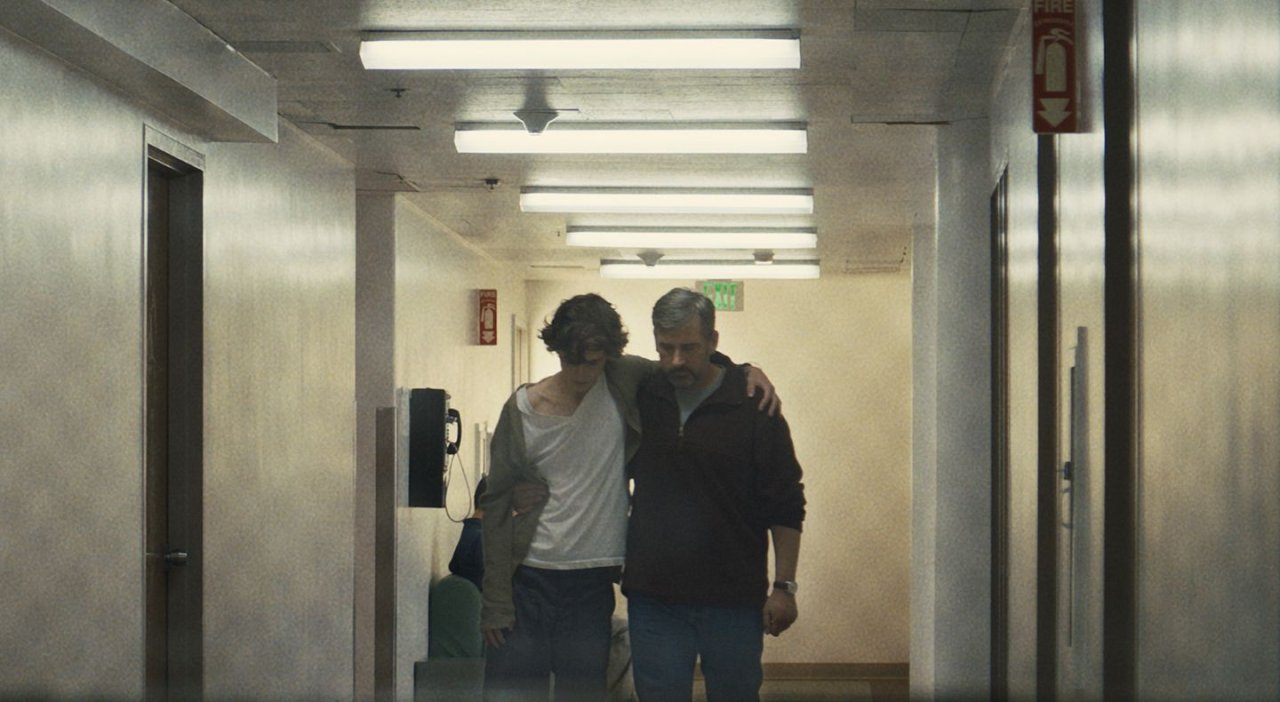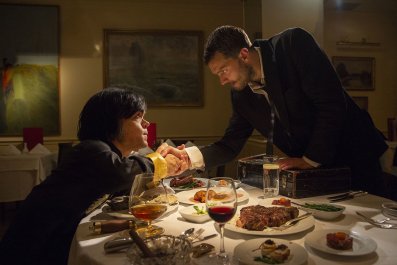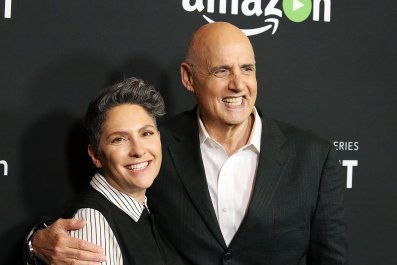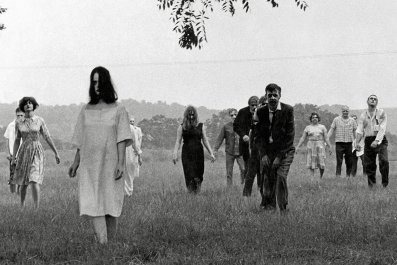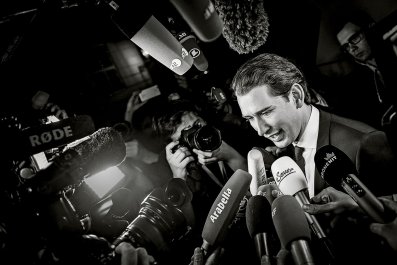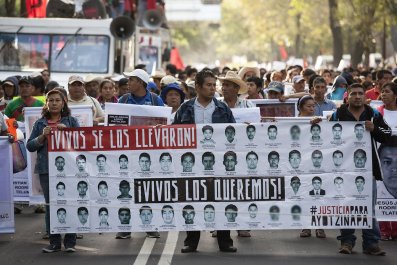Nic Sheff thought he was going to die. Sometimes he welcomed it.
"I came close many times," he says of his early 20s, when he was addicted to methamphetamine. Nic was so unhappy when he was clean, he thought he might as well use until it killed him. "That," he remembers thinking, "will be better than living sober."
Nic began drinking when he was 11, later experimenting with pot and cocaine in high school. Crystal meth, which he tried at 18, was different. The euphoric rush, as he wrote in his memoir Tweak: Growing Up on Methamphetamines, made him feel whole for the first time in his life. When meth wasn't available, he substituted heroin or morphine. His habit soon spiraled into full-blown dependency, wrecking his life with startling rapidity. He dropped out of college twice. Soon, he was pilfering cash from his 8-year-old brother, stealing hypodermic needles and waking up in hospital rooms after overdosing.
He has regrets. So does everyone. But now 36 and eight years sober, Nic can watch his life's darkest moments unfold on the big screen.
Beautiful Boy, directed by the Belgian filmmaker Felix van Groeningen, chronicles Nic's harrowing slide into meth addiction, as well as his father's desperation to save him. Nic is played by Timothée Chalamet, in what critics are calling an Oscar-worthy performance (it would be his second nomination, after his nod for 2017's Call Me by Your Name). Nic's father, the journalist David Sheff—whose own memoir, Beautiful Boy, gave the film its title and father-son focus—is played by Steve Carell. The screenplay is also based on Nic's memoir, released at the same time as his father's, in 2008.
In his book, David recounts endless visits to rehab centers, pleading calls to doctors and sleepless nights spent wondering if his son was alive. Watching Nic's character shooting drugs "was absolutely horrific," David says. "Seeing it is different than reading about it or talking about it. It was both sad and terrifying. I watched with my eyes half-closed." When he met with Carell, the actor told David he had no personal experience with hard drugs. "But he was a parent. And that's what he loved about the story: We want to protect our kids, and what do we do when we can't?"
Chalamet auditioned for the part when he was 20, a virtual unknown beyond film circles. By the time the film debuted at the Toronto Film Festival this fall, his work in Call Me by Your Name and Lady Bird had made him world famous. Nic describes being with him at the Beautiful Boy premiere: "Girls were lining up outside the restaurant. We had to sneak out the back. It was like being with the Beatles."
The ex-Beatle John Lennon, as it turns out, gave the film its title. David conducted the last extensive interview with Lennon and his wife, Yoko Ono, for Playboy magazine, in 1980. He was in the studio when the couple recorded "Beautiful Boy (Darling Boy)," written for their own son, Sean. Lennon was killed by Mark David Chapman two days after the story was published.
The music of Nic's life lights up the film's soundtrack, including Nirvana (a childhood favorite), Neil Young, Fiddler on the Roof and—of course—"Beautiful Boy." Yet music became fraught for David during Nic's battle with addiction. He remembers hearing Eric Clapton's "Tears in Heaven" (about the death of the rock star's young son), "and I just lost it." He was out with his two younger children, who "were horrified to see their father crying in the middle of a grocery store."
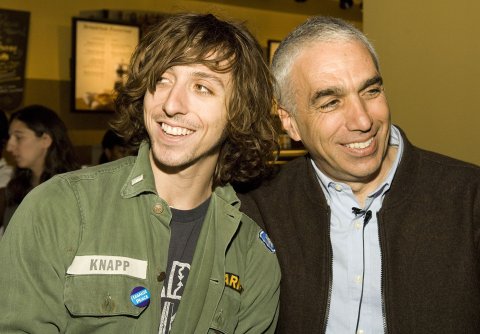
The classic Addiction Movie Narrative Arc goes like this: Character develops drug or alcohol problem, character hits rock bottom, and character either dies or gets clean. "They see the light, and they're quote-unquote 'cured,' and everything is wrapped up with a bow," David says. In reality, "it's so much more complicated. Hope is followed by disappointment, disappointment by despair—and if you're lucky, there's hope again."
Though it's a highly stylized dramatization, Beautiful Boy dispenses with common addiction clichés: Here is a story where recovery does not progress in a straight line. There is, for instance, the scene where David gets a call from a rehab center informing him that his son fled. He panics. The doctor reassures him: "Relapse is a part of recovery." It becomes a sort of mantra as Nic keeps slipping.
"This is always a huge challenge to get families to understand," says addiction psychiatrist Scott Bienenfeld, medical director of the Recovery Spot in New York. "Addiction is an illness that's not something that can just be swatted away. Relapse is what makes it addiction." Bienenfeld is more surprised when relapse isn't a problem for longtime users of hard drugs. "Crystal meth is the most addicting drug there is," he adds. "When they measure dopamine release in the brain, meth dwarfs everything else."
Beautiful Boy ably conveys the way addiction corrupts behavior, turning abusers of heavy-duty drugs into ugly caricatures of themselves, and the film is most powerful watching Chalamet. Nic, once bright and gentle, becomes erratic and demonically self-destructive. "They look like sociopaths," says Bienenfeld. "They do whatever they can in the service of addiction—which looks like lying, cheating, stealing." That, he adds, "doesn't make them bad people."
It took David a while to grasp that addiction is an illness, like cancer or diabetes. When he did, "everything shifted in my heart," he says. He stopped trying to control and punish Nic. Stints in high-priced rehab centers offered some hope, but most such attempts didn't last. A breakthrough came when he got Nic, then 27 or 28, to see a psychiatrist, who diagnosed some of the underlying mental conditions—in this case, bipolar disorder and depression. "It turned out that he was really trying to self-medicate for these serious mental illnesses," David says. "Once she figured out what was going on, she got him on medications and therapy."
David remembers the "daily terror" of wondering where Nic was and whether he had relapsed again. For years, he feared his son would die young. When Nic went missing, he would call the local emergency rooms and morgues. He remembers Nic's 21st birthday, in 2003. "I kept thinking, I never thought he would make it to 21. Then after that, he relapsed again."
Nic did make it to recovery; sober since 2010, he's married and lives in Los Angeles, where he writes for TV shows (including 13 Reasons Why). "It's just a miracle," says David, who admits to some survivor's guilt. "Why did my son make it, and all these other parents had to bury their kids? There's no answer other than luck and only luck."
Beautiful Boy opens October 12.



